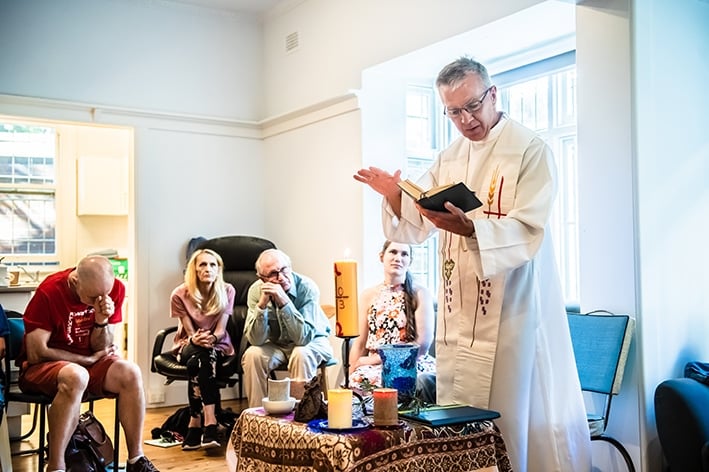
The Southern Baptists are ousting all their female pastors. It’s been a long-standing policy in the Southern Baptist Church, which is the largest protestant denomination in the US, that women cannot be leaders, but some churches, including a few powerful and prominent ones, have bucked the teaching. But this year, presumably in response to recent culture wars over gender and gender roles, there has been a crackdown, and the organisation voted to expel some churches that hadn’t been following these guidelines.
I haven’t been following this news closely. I don’t think I know any Southern Baptists, except on Twitter and such. But I have been hearing snippets of their genuine struggle, and it’s gut-wrenching to hear people make arguments that boil down to: God says women cannot teach men, and God says women cannot be in authority over men, and God says women need to understand their place. I thought to myself, “These poor women. They should get the heck out of that church and come be with us Catholics.”
And then I realised, “Oh, that’s what most people Catholics are like.” They see the all-male priesthood and think that we also teach and believe that women can’t be priests because they need to be subservient to men; that they need to learn from men, and not teach; that they need to cede all power to men; and that all men are born leaders and all women are born followers. They think women can’t be priests because men are more like God than women are. This idiocy is thanks, in part, to the bloviating misogyny of some far-right trad Catholics, unfortunately; it is not church teaching.
Let me make something clear: There is misogyny in the Catholic Church. We have a huge problem with misogyny, in how we frequently teach about sexuality, in how we teach about marriage, in how we teach about virginity, in how we teach about virtue. This is slowly improving, and I hear many more stories of women going to confession and getting solid, compassionate, sensible advice from young priests, and far fewer stories about how they were told to simply be more docile and obedient and patient and forgiving, and maybe their husbands would stop feeling like abusing them so much.
(I mention confession advice as a shorthand for the state of the culture, and I think it works pretty well as a snapshot. It is not the only example of change I have seen, and it’s not the only area that needs change.)
But even though I have been acutely aware of this problem, I’ve never automatically identified the male priesthood itself as a function of misogyny. This is probably because I’ve been lucky enough to know many, even mostly, priests who are fully given to service. This is how the priesthood—and the episcopacy, and the papacy—are rightly lived out. This is why we call the pope “the servant of the servants of God.”
Does it always look that way? No. Absolutely not. There have been too many priests and bishops and yeah, popes, who see their office as an opportunity for power. But that is not what the office is. That is an abuse of their vocation.
“If maleness meant service, people would be much more open to hearing about the ontological meaning of maleness, and why it makes men potentially fit for the priesthood.”
A friend said that, when she discusses the all-male priesthood with non-believers, she sometimes starts with pointing out that women, in general, already live lives where they serve and serve and serve; whereas men’s lives aren’t oriented this way. They need an office that channels their lives and energy into service, and they need it to be a thing for men to do, or else they will not do it.
This is not intended as a theological argument. We don’t have an all-male priesthood because we live in a culture which deprives men of service opportunities. I’m just saying that, because that’s how the culture is, the all-male priesthood lived rightly doesn’t clash at all with the theology as I understand it. I see priests pouring themselves out in service to their flock, constantly minding themselves to be sure they are taking the sometimes widely divergent needs of their people into account in every decision they make.
If more priests followed this model, we would have a much smoother path to explaining the more complex theological reasons for an all-male priesthood. If maleness meant service, people would be much more open to hearing about the ontological meaning of maleness, and why it makes men potentially fit for the priesthood. And maleness should mean service. What do you suppose those muscles, for instance, are for?
Priests can be all kinds of men. I’ve often thought that this is surely one of the ways you can tell the Catholic Church is truly the one true, universal church: Because its priests aren’t typically one certain type of guy. We have shy men, obnoxious men, goobers, cynics, jokers, jocks, sentimentalists, and every other type of guy you can think of; but every single one of these types of guys is called to service, and can serve while being the kind of man he is. Don’t kid yourself that we need to RETVRN to the days when priests were treated like little princes. That was bad for them and bad for everyone else. We owe priests respect, but they owe us everything.
Is this different from the teaching that women cannot lead a Southern Baptist congregation? It could hardly be more different.
